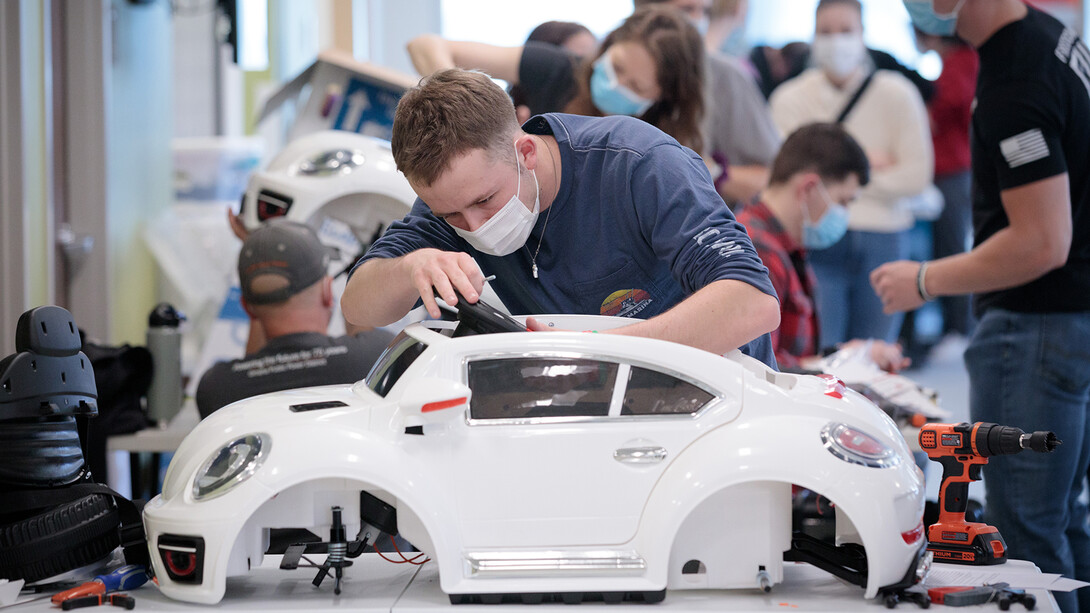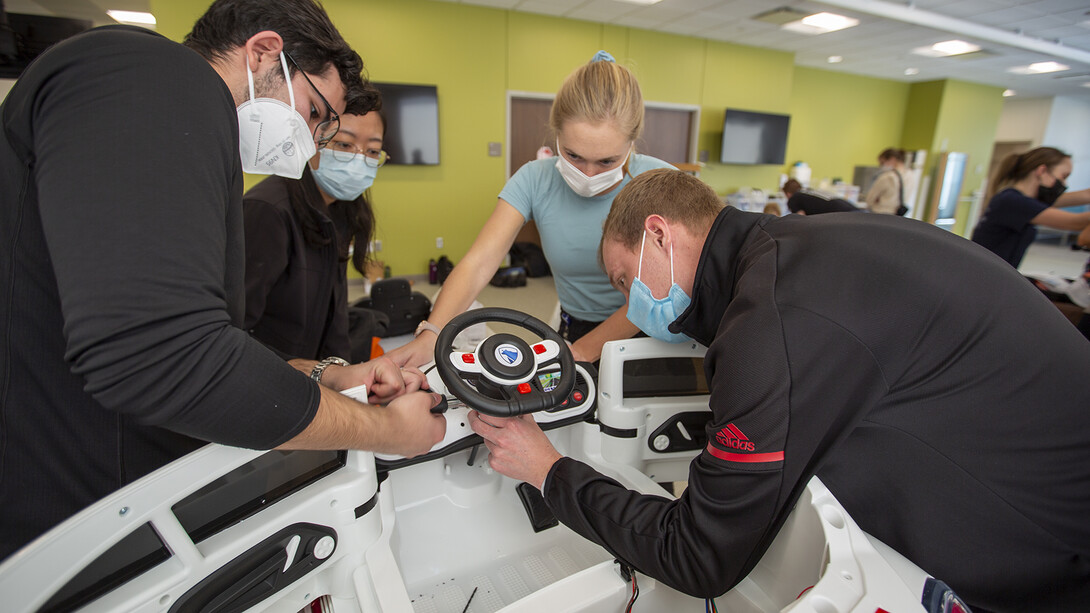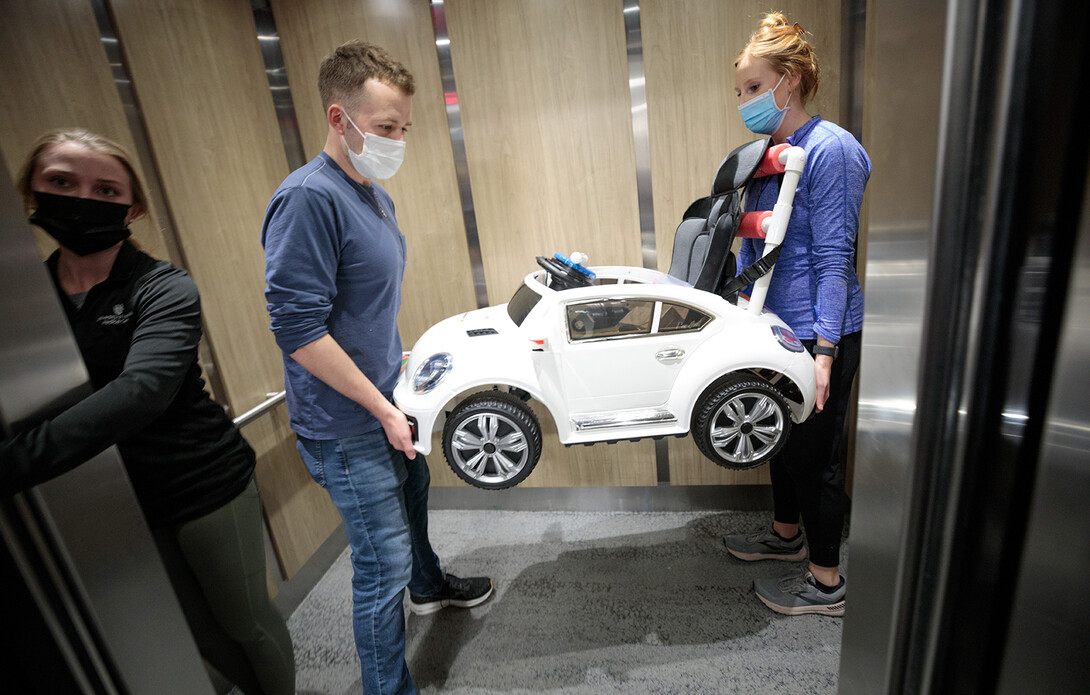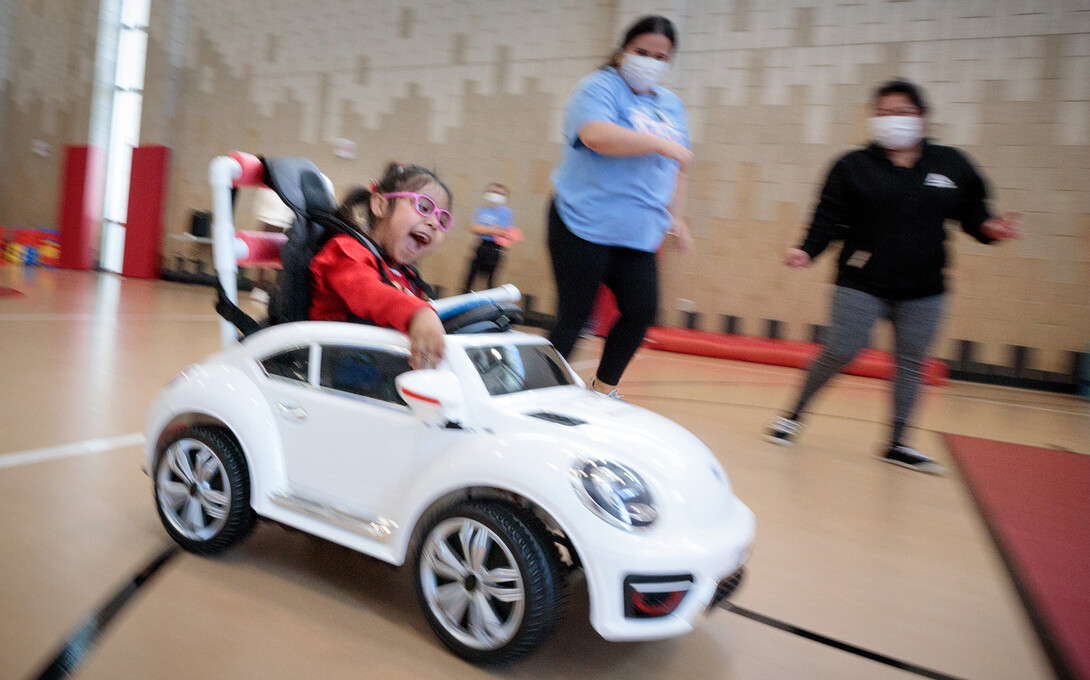
Clinging to a ledge — and with a little support from his mom — Callum Wilkie watched through a window as other children cruised about in kid-sized battery powered cars.
The 3-year-old, who was born with congenital hip dislocation, rocked slightly with excitement as he turned to look at his mother, Erin.
“Yep, yours will be here soon,” Erin Wilkie said. “We need to be patient. Just think, you’ll be able to go to the park and drive around like all the other kids.”
Callum was one of 10 area youth who received a free customized battery-powered cars on April 2 through Nebraska’s GoBabyGo! chapter. Established in 2016 and funded through the Munroe-Meyer Guild, the chapter is a partnership between the University of Nebraska Medical Center’s Munroe-Meyer Institute, the University of Nebraska–Lincoln’s College of Engineering, University of Nebraska at Omaha, and UNMC’s College of Allied Health Professionals/physical therapy students.

Twice each year, future engineers and health professionals from the partner institutions and Creighton University join forces to customize the electric cars to meet the specific needs of children with mobility issues.
“Most of these kids haven’t moved on their own in their lives,” said Ethan Bowles, a senior biological systems engineering major. “It’s incredible when you think about that — mobility is so very important, but it’s something that many of us take for granted every day.”
Bowles was one of seven Huskers from the university’s Biomedical Engineering Society chapter who participated in the April 2 GoBabyGo! event at UNMC’s Munroe-Meyer Institute. It was the third time he volunteered to assist with the project.
Teams of four, which include at least one engineer and a physical therapist, perform the modifications. Their work is defined by the needs of each child — the physical therapist (who usually works with the child) providing oversight on the adaptations, and the engineers/technicians performing the electrical, steering and seating adjustments.
“Having the mindsets from the different schools, backgrounds and disciplines come together allows us to develop some innovative solutions,” Bowles said. “It’s always a great collaboration. And, it allows each of us to apply skills we’ve learned in the classroom on a real-world project while also developing our interpersonal skills.”

The GoBabyGo! project was founded by Cole Galloway, a physical therapist at the University of Delaware, to make mobility devices accessible, affordable and easy to use for all children. Its creation is based on research that shows independent mobility changes the way children think about space, objects and social interaction.
“My son is behind in terms of mobility because he spent the first nine months of his life in a cast from just below his ribs to his ankles,” Erin Wilkie said. “He can’t walk, but this will allow him to keep up with the other kids at daycare. He’ll be able to move along with them and it will allow him to drive around when we hang around outside at our house.
“Being able to move around freely like that is a big deal — something every kid should have.”
And, seeing the kids realize the power of mobility is what keeps Huskers, Mavs and Jays coming back to assist with the GoBabyGo! builds.
“The end of the day is so satisfying, knowing you’ve used your skills to make a child’s life a little bit better,” Bowles said. “But, the real payoff is seeing their faces light up when they start moving that first time. The feeling that smile gives you is like nothing else — it’s very gratifying.”
Funding for Nebraska’s GoBabyGo! projects is provided by the Munroe-Meyer Guild and the University of Nebraska Foundation. Learn more about the project.








